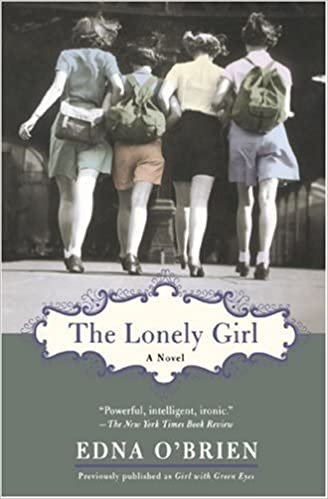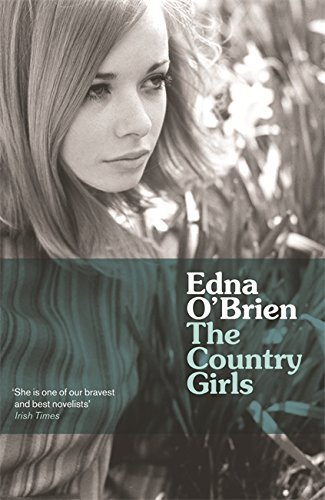Has there ever been a more ironic title for a novel? In the third book of O'Brien's 'Country Girls' trilogy we pick up with Cait and Baba to discover they have separately married. Despite the prospect of her independence in London at the end of “The Lonely Girl”, Cait has actually married the problematic older man Eugene, given birth to his child and is in the midst of an affair when the novel begins. Baba has also married a prosperous but dull-witted man who is a poor match for this highly social and sexually forward woman. Neither of these women are content with their lives, let alone feeling anything close to bliss. Along with learning about the developments in these girls' lives which occurred between the novels the most striking thing about this latest instalment is that O'Brien has changed the narrative so it alternates between Cait and Baba's perspective. (Previously, we've been firmly locked in Cait's point of view.) It's quite emotional following the dramatic events of this novel as I've grown to closely know and care about both these girls as they've struggled to achieve their desires while developing into independent women.
At first it's a great novelty getting Baba's brashly unfiltered perspective. However, it soon feels a bit too chaotic as events unfold and it ultimately detracted from my enjoyment of following a story which had previously engrossed me. I'm not sure why O'Brien chose to change the narrative in this way as Baba's voice and point of view always came through clearly enough in the dialogue of previous books. Of course, it's also more gloomy following the girls into their adult lives as all the promise and prospects they enjoyed when they were younger and rebellious have dwindled as they've made certain life choices. It previously seemed like there were educational and professional prospects for them but those have seemingly been put aside. Far from finding personal contentment in motherhood, each woman differently struggles with parenting while being embroiled in relationship difficulties. There's the sad fact that these girls have become bound by the same struggles which inhibited their mothers' livelihood. So it's depressing seeing the cycle continue.
Nonetheless, the novel makes a striking statement about how we all get caught in the “rut of human existence” because of conflicts to do with romance, friendships and living in a community. However, because of the conservative attitudes and the dominant religion in Ireland at that time, these women aren't equipped to deal with and productively discuss the challenges that they face. There's no support network for their issues which are universal but the patriarchy expects them to silently abandon their desires and submit to what's expected of them. They are locked in a perpetual state of “girlhood”. While their difficulties are partly circumstantial they also have personalities which compel them to make some unfortunate choices and they end up perpetuating damaging behaviour. This trilogy also includes an afterward by the author which is really more like a novella and from what I understand O'Brien wrote it several years after completing this third book. Sadly, this only reinforces the sense that rather than being beacons of progress these girls end up damaging those around them and find no fulfilment. It's realistic that things work out this way, but it does make these last instalments relentlessly depressing to read. Previously it felt like the novels achieved a good balance between humour and seriousness. All this meant that I enjoyed this third novel the least of all the books, but O'Brien is such a skilful writer and this trilogy is truly a modern classic in the forthright way it presents the perspective of the young Irish female experience.













